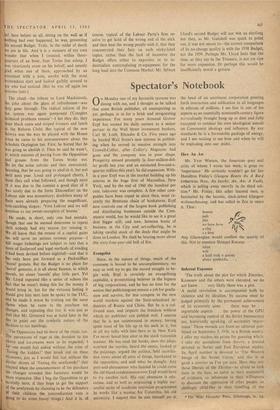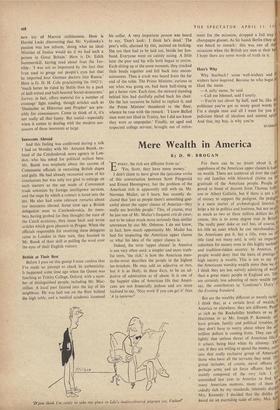Indecent Exposure
'The truth about the plot for which Zinoviev, Kamenev and the others were executed, we do not know . . . very likely there was a plot. . . A social revolution is accompanied both by violence and by idealism. Its success must be judged primarily by the permanent achievement of its economic aims . . there may be . . . regrettable aspects . . . the power of the GPU and increasing control of the Soviet bureaucracy are, historically speaking, of secondary impor- tance.' These morsels are from an editorial pub- lished on September 5, 1936, in a British weekly. I offer my readers no prizes for guessing which. I take my quotations from Survey, a journal devoted to Soviet and East European studies. Its April number is devoted to 'The Western Image of the Soviet Union,' and this is as good a sottisier as I've yet seen. Here they are, those liberals of the Thirties—so afraid to look facts in the face, so naive in their assessment of evidence, so inhumane in their willingness to discount the oppression of other people, so chillingly child-like in their handling of the * The Wild Flounder Press, Edinburgh, 4s. 6d. new toy of Marxist ruthlessness. Here is Harold Laski discovering that Mr. Vyshinsky's passion was law reform, 'doing what an ideal Minister of Justice would do if we had such a person in Great Britain.' Here is Dr. Edith Summerskill, having read about Ivan the Ter- rible: 'I was not so impressed by the fact that Ivan used to gouge out people's eyes but that he imported four German doctors into Russia.' Here is G. D. H. Cole proclaiming (in 1942!); 'much better be ruled by Stalin than by a pack of half-witted and half-hearted Social-democrats.' Survey, in fact, offers material for a number of evenings' light reading, though articles such as 'Deutscher as Historian and Prophet' are pos- sibly for connoisseurs. Come to think of it, it's not really all that funny. But useful—especially when it comes to dealing with the modern suc- cessors of these innocents at large.



































 Previous page
Previous page